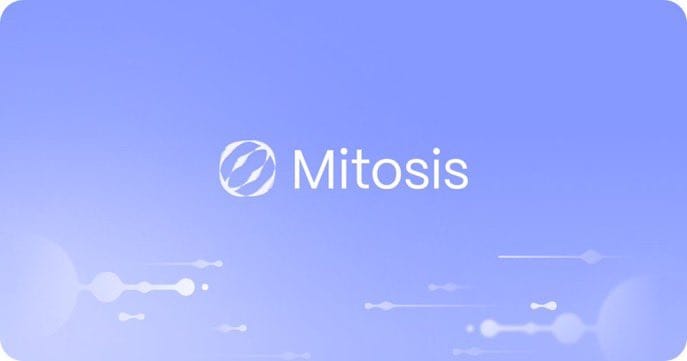Bridging Borders with DeFi: How Mitosis University’s Multilingual Education Empowers Global Financial Inclusion
Introduction
Decentralized finance (DeFi) promises a borderless, permissionless future where financial opportunity is accessible to all. But for billions of people, language remains an invisible gatekeeper. Whitepapers, smart contracts, and tutorials are overwhelmingly published in English, isolating vast populations in Latin America, Africa, Asia, and beyond from the benefits of this financial revolution. Mitosis University is tackling this head-on by offering multilingual education, tools, and peer support that break through linguistic and regional barriers.
By localizing content in languages such as Spanish, Hindi, Swahili, Mandarin, and Arabic—and pairing it with culturally relevant examples—Mitosis University is more than just an educational platform. It’s a launchpad for global DeFi adoption. Whether you’re a farmer in Nigeria, a shopkeeper in Colombia, or a student in Vietnam, the university helps you understand wrapped tokens, navigate liquidity pools, and engage with tokenomics in your native tongue.
This isn’t just about inclusivity. It’s about empowerment—turning users into liquidity providers, yield strategists, and governance contributors, regardless of geography or language. Let’s dive into how Mitosis University is bridging borders, empowering financial independence, and democratizing access to the tools of DeFi.
Removing the Language Barrier to DeFi
Multilingual Modules for Foundational Understanding
The first step toward financial empowerment is understanding. Mitosis University offers multilingual modules that explain core DeFi concepts—like smart contracts, Total Value Locked (TVL), p2p protocols, and stable coins—using local idioms, analogies, and real-life case studies. Each course is not simply translated but transcreated, ensuring cultural relevance.
Example: A Swahili-language module explains wrapped tokens using mobile airtime credits. Just as you can convert your credits to another network through a third-party vendor, a wrapped token allows you to use Ethereum-based assets on Solana without altering their value. This analogy makes abstract blockchain concepts relatable to users in East Africa.
Visual, Voice, and Interactive Learning Tools
Text-heavy DeFi documentation can overwhelm even native English speakers. That’s why Mitosis University emphasizes visual and voice-based learning tools—including animated explainers, community voice chats, and interactive infographics in multiple languages. Testnets with native-language guides allow learners to experiment with miAssets, liquidity pools, and governance proposals without the fear of financial loss.
Example: A Hindi-speaking user in India uses an interactive dashboard to simulate staking miDAI in a liquidity pool, learning how yield strategies are affected by gas fees and Tvl. With audio guides in their language, they gain the confidence to later do it live with real tokens.
Supporting Regional DeFi Innovation
Localized Use Cases for Global Relevance
One size doesn’t fit all in finance. A strategy that works in the U.S. might be irrelevant in Nigeria or the Philippines. Mitosis University actively collects and publishes localized case studies that show how DeFi tools—like miAssets, EOL (Ecosystem-Owned Liquidity), and wrapped tokens—solve regional problems like inflation, remittances, and banking exclusion.
Example: In Argentina, facing hyperinflation, a localized guide in Spanish helps users convert their pesos into stable coins like miUSDT, stake them in EOL-powered pools, and earn passive yield while bypassing traditional banks. The guide walks them through how to protect against liquidation and use smart contracts to automate savings.
Community-Driven Translation and Expansion
Rather than relying solely on top-down translations, Mitosis University empowers its community to create and verify multilingual content. Through a reward-based contribution system, local educators and developers create video tutorials, testnet walkthroughs, and DeFi explainers in their native languages.
Example: A Vietnamese developer contributes a comprehensive tutorial on cross-chain liquidity provision, which is translated into English and Spanish by the community. The guide includes interactive visuals showing how to manage wrapped miAssets between Solana and Ethereum while maintaining optimal yield strategy. These contributions earn the developer reputation, NFT-based credentials, and token rewards.
Financial Empowerment Through Inclusive Access
Creating Opportunities for the Unbanked and Underserved
According to the World Bank, over 1.4 billion people globally remain unbanked. DeFi offers them a lifeline—but only if they can understand and safely use the tools. By lowering the educational barrier, Mitosis University helps people who’ve been excluded from traditional finance become their own banks, lenders, and liquidity providers. Example: A rural farmer in Kenya, with no formal bank account, learns through a Swahili module how to use miAssets to participate in a savings pool. By staking stable coins like miDAI into a smart contract, he earns interest and uses p2p transactions to receive payments from nearby buyers—all without intermediaries or paperwork.
Driving Regional Adoption Through Local Hubs
To further support adoption, Mitosis University is partnering with local crypto hubs and NGOs to host in-person and online workshops. These regional ambassadors facilitate testnet bootcamps, TGE events, and DAO voting simulations in local dialects, using real-world scenarios like farming, trading, or freelancing. Example: In Bangladesh, Mitosis hosts a community workshop in Bengali, where freelancers learn how to convert their USDT earnings into miAssets, use liquidity pools for yield farming, and vote on EOL allocation proposals through the DAO. The training demystifies DeFi and turns passive users into active participants.
CONCLUSION
Financial empowerment shouldn’t be a privilege of the English-speaking world. DeFi has the potential to democratize access to capital, savings, and innovation—but only if the ecosystem meets users where they are. Mitosis University is doing just that by removing the language barrier, localizing content, and amplifying regional voices through multilingual education. From cross-chain liquidity pools to governance participation, from NFT credentials to wrapped token strategies, Mitosis University ensures that no user is left behind. In doing so, it’s not only educating users—it’s empowering communities, decentralizing opportunity, and proving that DeFi’s future is truly global.
As DeFi continues to evolve at a rapid pace—expanding across chains, reimagining financial systems, and empowering individuals to take control of their assets—Mitosis University will remain firmly at the forefront of this global transformation. It will not only keep pace with innovation but actively shape it, serving as both an educational foundation and a launchpad for meaningful impact. Through its multilingual resources, community-driven content, and commitment to accessibility, Mitosis University is uniquely positioned to bridge more than just blockchains—it’s building bridges between people, cultures, and entire economies.



Comments ()